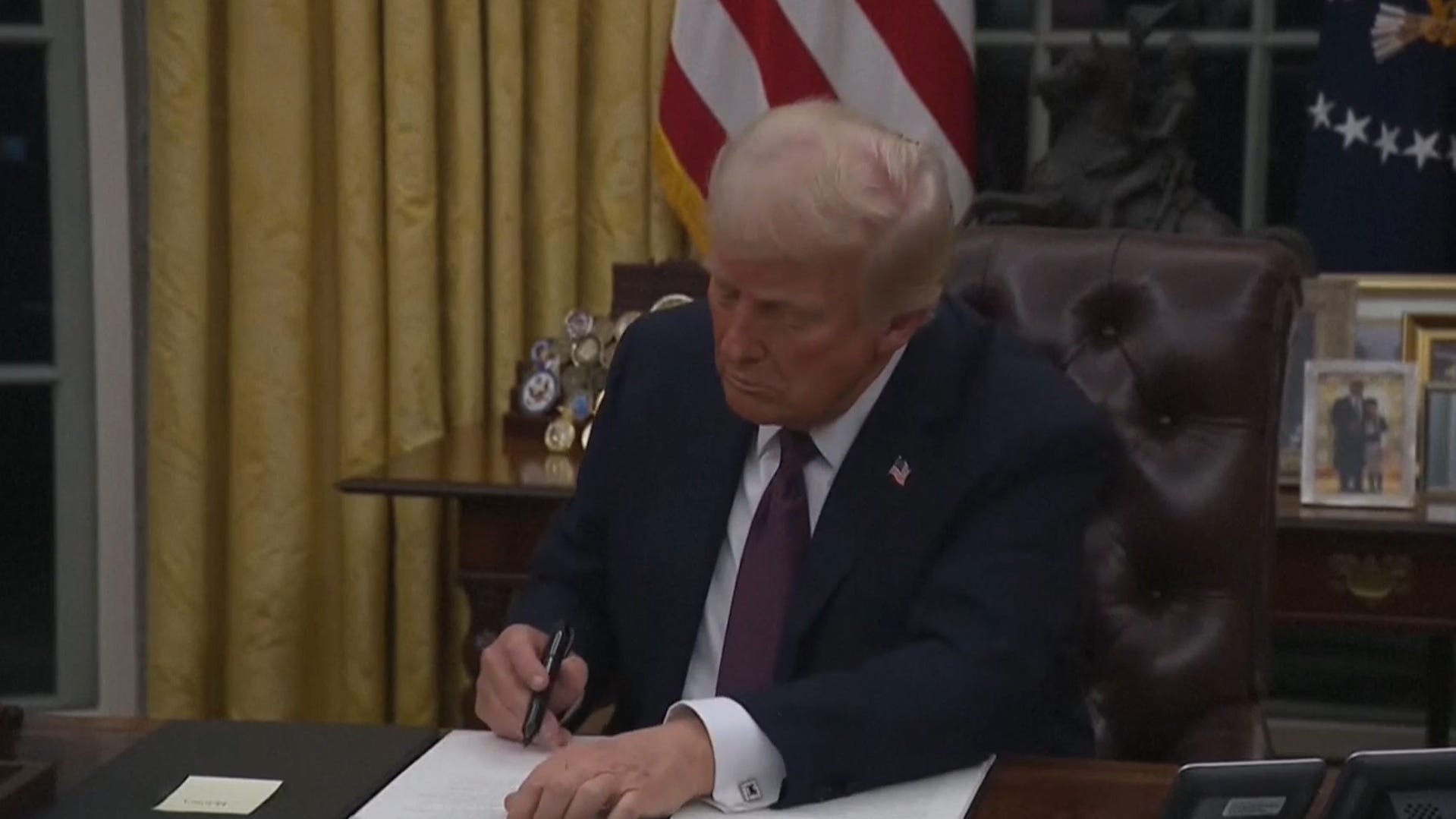Donald Trump issues executive order to halt TikTok ban – but is it legal?

As one of his first moves following his inauguration, President Donald Trump issued an executive order Monday aiming to halt enforcement of a ban on TikTok in the U.S. for 75 days.
The order comes after TikTok abruptly shut down in the U.S. over the weekend, only to say it was working to restore service based on assurances from Trump. Service was swiftly restored to the popular short-form video app Sunday, although Apple and Google haven't returned it to their app stores for downloading.
"I intend to consult with my advisors, including the heads of relevant departments and agencies on the national security concerns posed by TikTok, and to pursue a resolution that protects national security while saving a platform used by 170 million Americans," Trump said in the executive order.
"My Administration must also review sensitive intelligence related to those concerns and evaluate the sufficiency of mitigation measures TikTok has taken to date," he said.
Trump posted on Truth Social Sunday that he would issue the order on his first day as a second-term president "so that we can make a deal to protect our national security."
"The order will also confirm that there will be no liability for any company that helped keep TikTok from going dark before my order," Trump promised.
The law Trump is seeking to halt requires TikTok's parent company, ByteDance, to sell American TikTok assets by Sunday for the app to keep operating in the United States. Congress passed it with overwhelming bipartisan support out of concern that TikTok's ownership structure – ByteDance is a Chinese company – could enable the Chinese government to get Americans' personal information and manipulate information Americans get.
Trump's current efforts to help the app mark a reversal. During his first presidential term, he issued an executive order seeking to ban TikTok based on national security concerns. The move didn't take effect because it was blocked in court.
What does the executive order say?
The executive order instructs the attorney general not to take action to enforce the ban for 75 days, to give the new administration "an opportunity to determine the appropriate course of action with respect to TikTok."
Trump also claimed in the order that any attempt by U.S. states or private parties to enforce the law would be encroaching on the powers of the presidency.
"The Attorney General shall exercise all available authority to preserve and defend the Executive’s exclusive authority to enforce the Act," Trump warned.
Does Trump have the power to halt the TikTok ban?
Whether Trump's executive order can truly temporarily halt the law isn't clear. The law works by imposing a $5,000 fine on companies for each user who accesses TikTok through their services. That includes companies like Apple and Google that provide platforms to download and update apps and companies like Oracle that provide internet hosting services.
The law does allow a president to extend the deadline for a TikTok sale by 90 days if the president certifies there has been progress toward a qualified sale. But TikTok hasn't indicated it is moving in that direction.
"I would like the United States to have a 50% ownership position in a joint venture," Trump wrote in his Truth Social post. "By doing this, we save TikTok, keep it in good hands and allow it to say [sic] up."
Republican Sens. Tom Cotton of Arkansas and Pete Ricketts of Nebraska in a joint statement Sunday appeared to dispute that Trump had the power to halt the law – which was passed by Congress and then signed by President Joe Biden in April – through an executive order.
"Now that the law has taken effect, there’s no legal basis for any kind of ‘extension’ of its effective date," Cotton and Ricketts said. "For TikTok to come back online in the future, ByteDance must agree to a sale that satisfies the law’s qualified-divestiture requirements by severing all ties between TikTok and Communist China."
Cotton also posted on X Sunday that a company that violates the law to help TikTok run in the U.S. "could face hundreds of billions of dollars of ruinous liability under the law, not just from DOJ, but also under securities law, shareholder lawsuits, and state AGs." "Think about it," he added.
Alan Rozenshtein, a University of Minnesota law professor, previously told Paste BN that a company could argue in court it shouldn't be forced to pay up for helping TikTok operate in the United States after the ban went into place if it relied on a promise from Trump not to enforce the law. However, it's not clear how that argument would fare in court.
The law authorizes the U.S. attorney general to sue companies to exact the $5,000 fines for violations of the law over the previous five years.
"The question is, if you're Apple, 'Does that give you enough comfort?' And I just have no idea what the answer is," Rozenshtein said.
(This story has been updated to add additional information.)